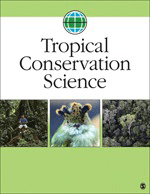
Tropical Conservation Science
Scope & Guideline
Advancing knowledge for a sustainable future.
Introduction
Aims and Scopes
- Biodiversity Conservation:
The journal emphasizes studies that contribute to the understanding and conservation of tropical biodiversity, including flora and fauna, with a particular focus on endangered species and their habitats. - Human-Wildlife Interactions:
Research on the interactions between local communities and wildlife, including conflicts, perceptions, and sustainable practices, is a core area of focus, highlighting the socio-ecological dynamics in tropical regions. - Ecological Impact Assessments:
The journal publishes studies that assess the ecological impacts of human activities, such as land use changes, pollution, and climate change, on tropical ecosystems. - Conservation Strategies and Policy:
It explores effective conservation strategies and policies, including community-based approaches, governance, and the role of NGOs in promoting biodiversity conservation. - Ecosystem Services:
Research on the provision and valuation of ecosystem services in tropical environments, including the impacts of conservation on local livelihoods, is a significant aspect of the journal's scope. - Climate Change Impacts:
The journal addresses the implications of climate change on tropical ecosystems and species, focusing on adaptive strategies for conservation.
Trending and Emerging
- Climate Change Adaptation Strategies:
There is an increasing focus on the development and assessment of adaptation strategies in response to climate change impacts on tropical biodiversity, indicating a proactive approach to conservation. - Community-Based Conservation Initiatives:
Research highlighting the role of local communities in conservation efforts is on the rise, emphasizing participatory approaches and the integration of local knowledge. - Wildlife Trade and Conservation:
The study of wildlife trade's impacts on species and ecosystems is gaining traction, reflecting growing concerns about illegal trade and its implications for conservation. - Technological Innovations in Conservation:
Emerging themes include the use of technology, such as remote sensing and acoustic monitoring, to enhance conservation efforts, showcasing advancements in methodology. - Ecosystem Resilience and Restoration:
There is a trend towards exploring ecosystem resilience and restoration techniques, particularly in the context of degraded tropical environments, highlighting the importance of recovery strategies.
Declining or Waning
- Traditional Ecological Knowledge:
While still relevant, the emphasis on traditional ecological knowledge has decreased compared to previous years, possibly due to a growing focus on empirical data and modern conservation methodologies. - Invasive Species Management:
Research specifically targeting invasive species management appears to be less frequent, indicating a potential shift towards broader ecological studies rather than focused management strategies. - Historical Ecology Studies:
There has been a noticeable decline in papers focused on historical ecology, possibly due to a trend toward immediate conservation challenges rather than retrospective analyses. - Agricultural Practices and Biodiversity:
The exploration of agricultural practices specifically in relation to biodiversity conservation has waned, suggesting a shift toward more integrated approaches that encompass broader ecological and socio-economic factors. - Species-Specific Conservation Efforts:
The focus on conservation efforts directed at individual species has become less prominent, with a trend toward ecosystem-level studies and holistic conservation strategies.
Similar Journals
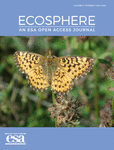
Ecosphere
Exploring the intricate web of life and its systems.Ecosphere is a leading open-access journal published by WILEY, dedicated to advancing research in the fields of ecology, evolution, behavior, and systematics. Established in 2010 and headquartered in the United States, this innovative journal provides a platform for the exchange of cutting-edge scientific knowledge and discovery, fulfilling its mission to enhance our understanding of ecological systems and their interactions. With a prestigious impact factor reflecting its commitment to high-quality research, Ecosphere is ranked Q1 in both Ecology and Ecology, Evolution, Behavior, and Systematics for 2023, further solidifying its prominence in the scientific community. The journal's scope includes a wide array of topics related to environmental science, making it an essential resource for researchers, professionals, and students aiming to stay at the forefront of ecological research. It offers comprehensive open access options, ensuring that groundbreaking findings are readily available to a global audience, thus fostering collaboration and innovation in the field.

BALTIC FORESTRY
Fostering Global Collaboration in Forest ScienceBALTIC FORESTRY, published by the INST FORESTRY LRCAF in Lithuania, is a prominent academic journal that serves as a platform for disseminating cutting-edge research in the field of forestry. With an ISSN of 1392-1355, this journal is dedicated to advancing knowledge on sustainable forest management, ecological impacts, and resource conservation, among other vital topics. As of 2023, it has been categorized in the Q3 quartile for forestry in Scopus, indicating its solid reputation among peer-reviewed publications, ranking #95 out of 174 in the realm of Agricultural and Biological Sciences. BALTIC FORESTRY features contributions from researchers across the globe and encourages innovative approaches to solving contemporary challenges in forestry, making it an essential resource for professionals, scholars, and students alike. Although it operates under subscription-based access options, the journal's commitment to fostering academic discourse is unwavering, aiming to bridge the gap between theory and practice in forest science.
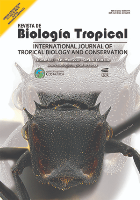
REVISTA DE BIOLOGIA TROPICAL
Fostering collaboration for a greener future.REVISTA DE BIOLOGIA TROPICAL is a prominent scholarly journal published by the Universidad de Costa Rica that serves as a vital platform for research in the realms of agricultural and biological sciences. Established in 1969, the journal has evolved into a crucial resource, contributing significantly to the understanding of tropical ecosystems and biodiversity. With its current classification in the Q2 quartile for Agricultural and Biological Sciences, it ranks #109 out of 221 journals in its category, reflecting its esteemed position within the academic community. Although it operates under traditional access guidelines, the journal remains committed to disseminating high-quality research that informs conservation efforts and sustainable practices in tropical biology. The journal's diverse scope encompasses a wide range of topics, ensuring relevance for professionals, researchers, and students dedicated to enhancing knowledge and innovation in the biological sciences. As the journal progresses towards 2024, it continues to invite contributions that advance scientific discourse and foster collaboration within the field.
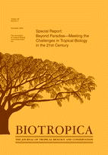
BIOTROPICA
Fostering innovative solutions for global conservation efforts.BIOTROPICA is a premier journal published by Wiley, specializing in the fields of Ecology, Evolution, Behavior, and Systematics. With a robust impact factor and positioned in the Q1 category in its field, it stands out as a leading source of research that informs and shapes our understanding of biodiversity and ecosystem management. Since its inception in 1979, BIOTROPICA has been dedicated to publishing high-quality articles that advance scientific knowledge and foster conservation efforts globally. Researchers and professionals alike value the journal for its rigorous peer-review process and its influence in academic discourse, demonstrated by its Scopus ranking placing it in the 70th percentile among its peers. While the journal does not currently offer open access, it continues to be a vital resource for those engaged in the study of biological systems, making significant contributions to the advancement of ecological science. Readers can expect to find a wealth of innovative research and perspectives that are critical to addressing contemporary environmental challenges.
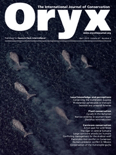
ORYX
Advancing the Frontiers of Ecology and ConservationORYX, published by Cambridge University Press, stands as a prestigious scholarly journal in the fields of Ecology, Evolution, and Conservation. With an ISSN of 0030-6053 and E-ISSN 1365-3008, this journal has been a critical platform for researchers and professionals since its inception in 1950. Recognized for its excellence, ORYX ranks in the Q1 quartile for both Ecology, Evolution, Behavior and Systematics and Nature and Landscape Conservation as of 2023, highlighting its influential contributions to the field. With a strong focus on disseminating innovative research and fostering collaboration among scientists, the journal covers a broad array of topics, from biodiversity and ecosystem services to conservation strategies and policy implications. As a result, ORYX provides invaluable insights that help shape the future of environmental science. Its impressive Scopus rankings place it in the top 80th percentile in its categories, further underscoring its importance and appeal among academics, professionals, and students alike.

Tropics
Advancing knowledge in tropical ecosystems.Tropics, published by the Japan Society for Tropical Ecology, is a prominent journal dedicated to advancing the field of tropical ecology, conservation, and environmental science. With an ISSN of 0917-415X and E-ISSN of 1882-5729, this journal has become a vital resource for researchers, professionals, and students interested in the intricate dynamics of tropical ecosystems. Although it operates as a non-open access publication, it continues to foster academic discourse and collaboration, evident from its various Scopus rankings across categories such as Environmental Science and Agricultural and Biological Sciences. As of 2023, Tropics stands resilient in its mission, providing invaluable insights, promoting sustainable practices, and addressing pressing ecological challenges within tropical environments. The journal’s contributions have been acknowledged since its inception in 1997, making it an essential part of the scientific literature landscape and a key player in supporting tropical ecological research.

Ecosistemas
Empowering ecological research for a thriving planet.Ecosistemas is a prominent Open Access journal published by the ASOCIACION ESPANOLA ECOLOGIA TERRESTRE, specializing in the field of ecology. Since its inception in 2001, it has dedicated itself to advancing ecological knowledge and research, fostering an inclusive platform for the dissemination of cutting-edge studies that span ecological interactions, sustainability, and biodiversity. The journal, based in Spain, has established its reputation with notable rankings such as Q3 in the field of Ecology and Q4 in Ecology, Evolution, Behavior, and Systematics, reflecting its commitment to quality research. With a Scopus Ranks position placing it in the 40th and 37th percentiles for its categories, Ecosistemas is integral to the academic community, serving researchers, professionals, and students alike. It provides a vital resource for those seeking to understand ecological dynamics and environmental challenges, facilitating open access to important findings and discussions that shape the future of our ecosystems.
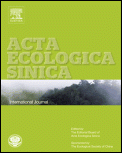
Acta Ecologica Sinica
Connecting researchers to drive ecological knowledge forward.Acta Ecologica Sinica, published by Elsevier, is a prominent journal in the field of ecology, with a strong focus on fostering understanding in ecological principles and their applications. Established in China, this journal holds an impressive Q2 categorization in both Ecology and Ecology, Evolution, Behavior and Systematics as of 2023, positioning it within the top tier of ecological research. With its Scopus rankings placing it in the 81st and 78th percentiles in relevant ecological domains, it serves as a vital platform for researchers and practitioners to disseminate findings that promote ecological sustainability. Although it operates under a traditional access model, its significant impact is underscored by its systematic convergence of key ecological inquiries across multiple years (2006-2008, 2014, 2017-2023). By engaging with the latest empirical studies, theoretical advancements, and methodological innovations, Acta Ecologica Sinica is indispensable for scholars dedicated to advancing ecological knowledge and addressing environmental challenges.
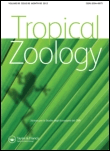
TROPICAL ZOOLOGY
Fostering conservation knowledge in diverse habitats.TROPICAL ZOOLOGY is a prestigious academic journal dedicated to advancing knowledge and research in the fields of animal science, zoology, and ecology. Published by PAGEPRESS PUBL, this journal has been an integral part of the scientific community since its inception in 1988, providing a platform for the dissemination of innovative research and discoveries related to tropical wildlife and ecosystems. With an impact factor placing it in the Q3 category for both Animal Science and Zoology, as well as Ecology, Evolution, Behavior, and Systematics, it ranks among the noteworthy publications in these fields. Researchers, professionals, and students will find that TROPICAL ZOOLOGY is an essential resource for the latest findings, fostering a deeper understanding of biodiversity and conservation in tropical environments. The journal is based in the United Kingdom, with additional administrative support from MEDIGROUP in Italy, ensuring a broad international perspective and reach. While it does not operate under an open access model, it remains committed to high-quality peer-reviewed content that contributes significantly to the understanding of tropical ecosystems and the species that inhabit them.

Frontiers in Conservation Science
Innovative Insights for a Sustainable PlanetFrontiers in Conservation Science, published by Frontiers Media SA in Switzerland, is an esteemed open-access journal dedicated to advancing research in the field of conservation science. With an E-ISSN of 2673-611X, this journal aims to facilitate the exchange of knowledge among researchers, professionals, and students by publishing high-quality, peer-reviewed articles that explore innovative solutions to contemporary conservation challenges. Since its establishment in 2020, the journal has rapidly ascended to a Q2 ranking in the Nature and Landscape Conservation category, reflecting its commitment to impactful scholarship, as evidenced by its Scopus rank of #93 out of 211 in Environmental Science and a 56th percentile ranking. By promoting open access, Frontiers in Conservation Science ensures that vital research is widely disseminated, fostering collaboration and informed decision-making in the conservation community. This journal is a crucial platform for those dedicated to understanding and preserving our planet's biodiversity and landscapes.